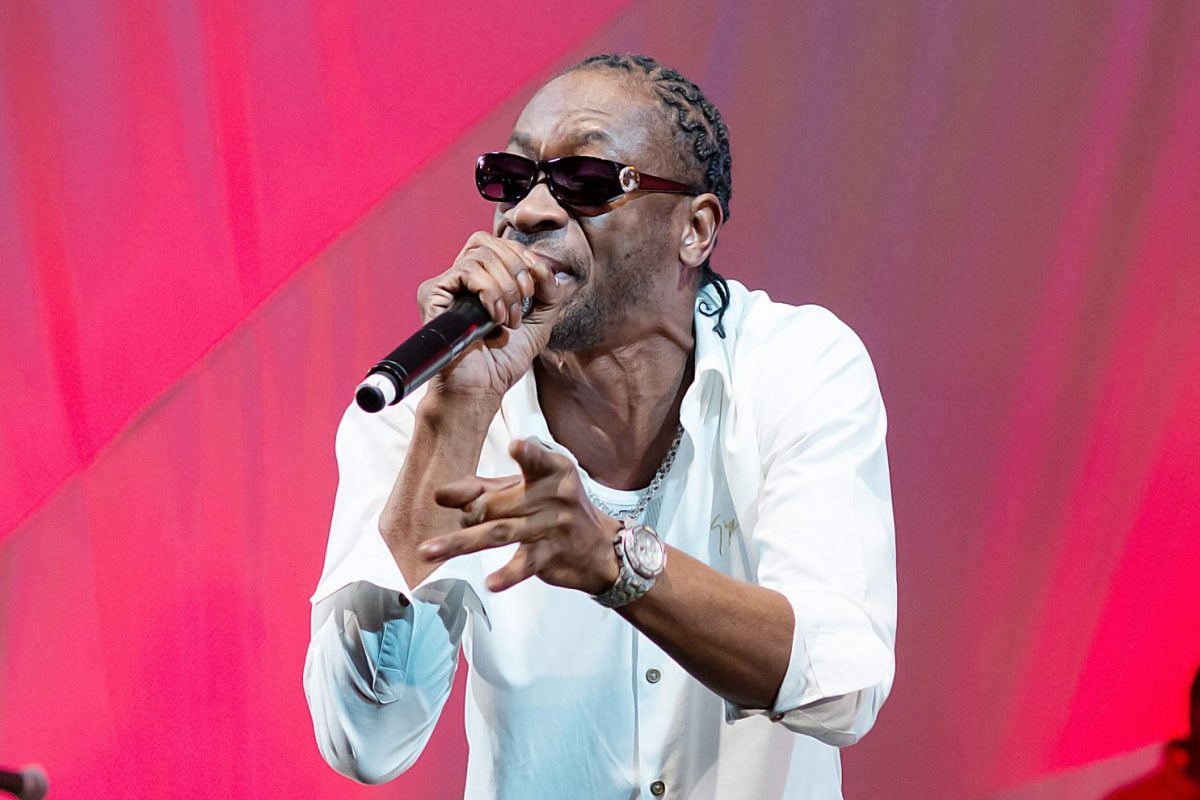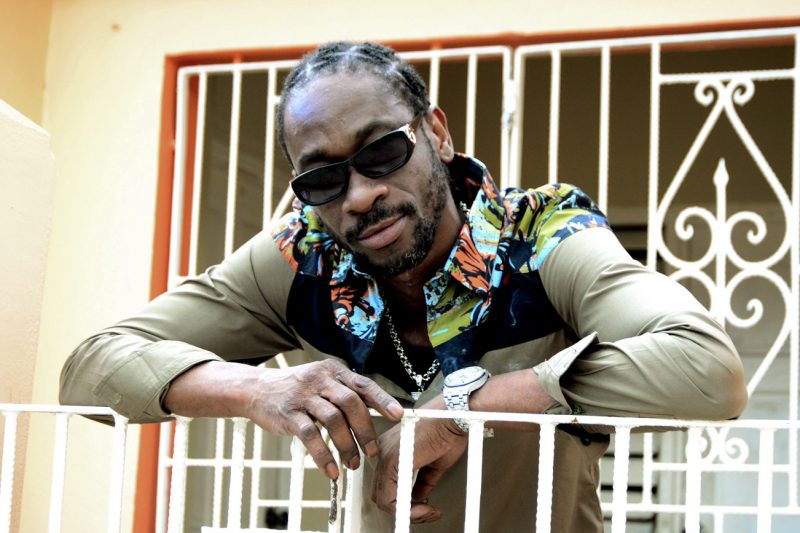Bounty Killer Expects Pandemonium When He Gets Back His Visa And Lands In New York

Bounty Killer’s highly cheerful response to questions about what his reception will be “when he arrives in New York”, is perhaps the clearest indication yet, that the Warlord’s US visa just might have been reinstated, 10 years after it was revoked by the US Embassy in Kingston.
And, if his self-assured comments to OnStage’s Winford Williams about how explosive his greeting will be, is anything to go by, then The Mystery might just be solved.
During Saturday night’s edition of Onstage, Williams seemingly searching for clues, told the Ghetto Dictionary artist that weeks ago whilst he was in the United States, he was approached by a man who declared to him, that “when”, not “if when”, the Warlord lands in the country, “di whole place a guh lock down”.
In response, a happy-looking Bounty who was laughing and rocking the entire time, declared that he will be received like the “One General in Dancehall” that he is, especially in the Jamaican stronghold of Brooklyn.
“When time mi reach a New York, mi nuh know bout no weh, but mi know bout New York still; when mi reach a New York, yow, dem haffi guh have – a wha kinda security dem have? A Federal security? But New York, specifically Brooklyn – no man when mi touch dem place deh, dat a like Tivoli, or Jungle or Seaview or Riverton and Callaloo Bed enuh,” Bounty declared amidst several chuckles.
“Brooklyn is the place that I first got my international break. Coppershot, first place it buss; Brooklyn New York, before even Jamaica,” he recounted.
He also reminded Williams that it was Johnny Wonder who spurred his notoriety in New York, by releasing Coppershot there, after the producer in Jamaica had put an embargo on its release, contending that due to the radio stations in Jamaica censoring songs with violent content, he would release a more conscious Bounty song instead.
“So that’s how my following in New York kinda suh powerful, because a New York first get dah Bounty Killa ignition, caw from there now me an Johnny Wonder start meck some New York collaboration, wid di Fugees, Busta Rhymes, wid di Mobb Deep, di New York top rappers dem, suh yuh know mi ting strong in New York… Caw mi get di New York love and di New York support,” he explained.

Bounty Killer’s US visa was revoked in 2010, as were those of fellow deejays Sizzla, Beenie Man, Aidonia, and Mavado. At the time, the US Embassy did not state the reason for the revocation, but reissued Aidonia and Mavado with visas sometime after.
In May last year, Dancehall megastar Shaggy, had kick-started a quest for Bounty and Beenie Man to be given back their visas in an Instagram post which went viral, following the duo’s epic VERZUZ clash, which had resulted in the platform’s followership ballooning to one million from less than 200,000 in 24 hours. Back then, Shaggy cited the fact that the two were musical ambassadors, with, among other things, the capacity to boost Brand Jamaica.
But four months later, the Grung Gad, in a new single titled Freedom, from his upcoming King of Kingston album, had made it clear that until the systemic injustices being meted out against black people in the United States come to an end, he preferred to remain ‘visa-less’.
Making his displeasure with the shenanigans in the United States clear, he had said that in all good conscience he, could not, of his own accord, actively seek out a visa to travel to a country in which people of his race are treated less than human, as he believes to do so would be a huge betrayal.
He sang: “But listen mek mi tell oonu bluntly/Oonu naw guh collect dis Bounty/If a suh, oonu can keep di visa/No, mi naffi go back a yuh country”.
Last May, as part of his efforts when he began lobbying for Bounty’s visa to be reinstated, Shaggy had called on the US Ambassador, the United States Embassy, and the Government of Jamaica, specifically Prime Minister Andrew Holness and Entertainment Minister, Olivia’ Babsy’ Grange, to put things in motion to reinstate the artists’ visas, which were revoked in 2010.
At the time, Shaggy had argued that despite their musical contributions to Jamaica industry, Bounty and Beenie were being shackled by the inability to, or en route to other countries via the United States, after being slapped with the US visa restrictions, and so needed both governmental and national support to get the permits returned.
